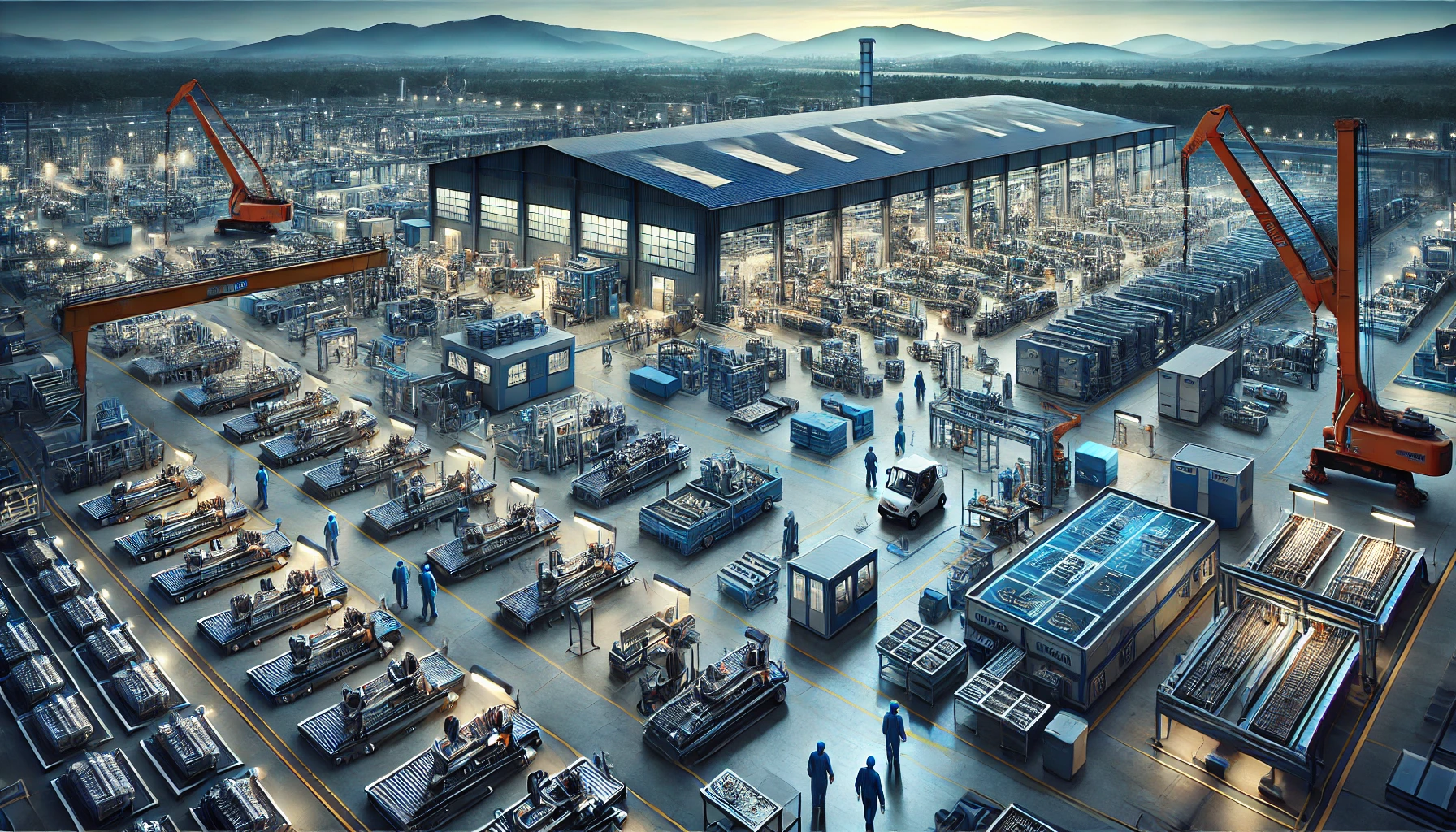What is Continuous Flow Manufacturing?
In manufacturing, the quest for efficiency, quality, and speed has led to the adoption of various methodologies aimed at enhancing productivity and reducing costs...
By AMREP | Posted on September 18, 2024

Vietnam's manufacturing industry has grown exponentially due to its strategic geographic location, competitive labor costs, rapid industrialisation, infrastructure network, and positive trade relationships with the world’s major economies (US, EU, China, Japan, Australia, South Korea). Its growth was accelerated over the last few years as restrictive COVID controls in China and the US-China tariff war caused production disruptions, political uncertainty, higher tariffs, and increased business costs. Many international companies see Vietnam as a safe place to ‘de-risk’ their exposure to China and volatile low-cost Southeast Asian countries.
In this article, our AMREP Supplier Management Services team gives a quick overview of the Vietnam manufacturing industry. We were in Vietnam as the country opened to foreign investment and witnessed its remarkable transition into advanced manufacturing.
Samsung, LG, Microsoft, Honda, and Unilever are amongst the biggest multinational companies in Vietnam.In 2023 , major US firms like Boeing, SpaceX, Netflix, Pfizer, Visa, Citibank, Meta, and Amazon visited Vietnam and made commitments to expand their manufacturing or business operations and invest in the country. South Korea, one of Vietnam’s biggest trading partners, is also to expand its investments - on 2 July 2024, Hyundai Motor, along with 3 major South Korean companies, expressed their interest to increase their financial commitments in Vietnam.
Situated at the crossroads of major Asian economies, Vietnam offers an advantageous geographic position. Its proximity to China, as well as its access to key shipping routes, enhances its appeal as a manufacturing, trade, and logistics hub.
One of Vietnam’s greatest advantages is its affordable and skilled labor force. The country’s relatively low wages, coupled with a growing pool of educated workers, makes it an attractive destination for companies seeking cost-effective manufacturing solutions.
Vietnam is investing heavily in its infrastructure to support the manufacturing sector. Significant improvements in transportation, logistics, and industrial parks are making it easier for companies to establish and expand their operations. The development of ports, highways, and rail networks is enhancing connectivity and reducing logistical costs.
Vietnam has entered into numerous trade agreements that open doors to international markets. Agreements with countries and regions such as the US (the US-Vietnam Comprehensive Strategic Partnership), European Union, Japan, and South Korea provide Vietnamese manufacturers with preferential access to these markets, boosting export opportunities.
Textiles and Garments The textile and garment industry is one of Vietnam’s most established sectors. Known for its high-quality production and competitive pricing, Vietnam is a leading exporter of textiles and apparel, serving major global brands and retailers.
Electronics Vietnam is advancing its electronics manufacturing sector, with a focus on both consumer electronics and industrial components. Major international companies have set up production facilities in Vietnam, benefiting from the country’s skilled workforce and favorable business environment.
Automobiles and Parts
The automobile manufacturing industry in Vietnam is expanding rapidly. Local and
international companies are investing in production facilities to meet growing domestic
demand and leverage the country’s competitive advantages in automotive parts manufacturing.
Furniture
Vietnam’s furniture industry is well reputed for its craftsmanship and design capabilities.
. With a rich tradition in woodworking and a growing emphasis on sustainable practices,
Vietnamese furniture is gaining popularity in international markets.
Vietnam’s favorable business environment is set to continue for the foreseeable future. The newly installed Prime Minister Phạm Minh Chính stated that Vietnam will prioritize economic growth and that export markets should be fostered through economic, trade, investment partnerships, people-to-people exchanges, and tourism. He also stated that the country is exploring new growth drivers such as the digital economy, the circular economy, the green economy, the sharing economy, and the knowledge-based economy. At the same time, his government is actively courting foreign investment. All these factors bode well for Vietnam manufacturing.
For businesses aiming to excel in this dynamic environment, grasping the essential sectors and harnessing Vietnam’s unique advantages is crucial. At AMREP Inspect, specializing in Manufacturing Management, we are committed to guiding you through these opportunities with precision and expertise. Contact us to discover how our tailored inspection and quality assurance services can secure your manufacturing success in Vietnam. Let’s turn challenges into opportunities together.
Contact Us To See What We Can Do
Call Us
Mon - Sat 9.00 - 18.00
Sunday Closed


23 - July 2024
23
July
2024
In manufacturing, the quest for efficiency, quality, and speed has led to the adoption of various methodologies aimed at enhancing productivity and reducing costs...

09 - September 2024
09
September
2024
Maquiladoras are manufacturing facilities in Mexico that work together with a company’s main office in the United States. These plants let businesses take advantage...

24 - July 2024
24
July
2024
ERP stands for Enterprise Resource Planning. It's a type of software that companies use to manage day-to-day business activities such as accounting, procurement...
